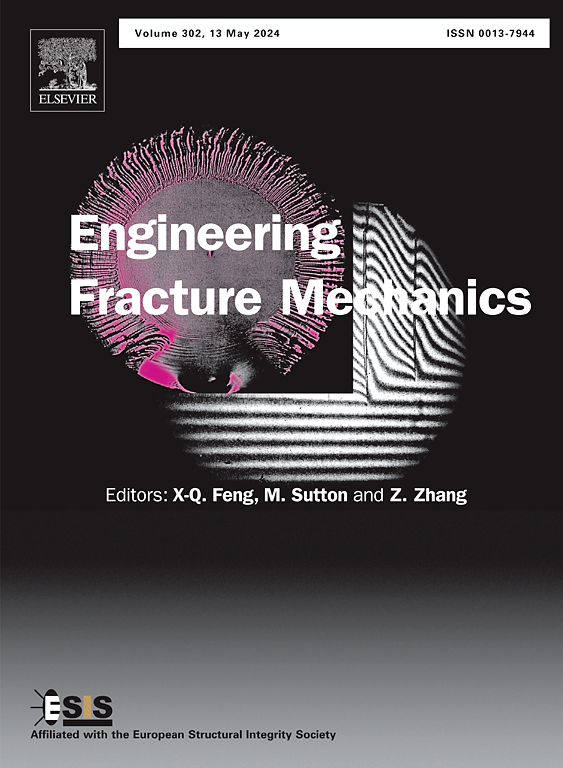Experimental and numerical simulation study of rough jointed rock samples under triaxial compression conditions
IF 4.7
2区 工程技术
Q1 MECHANICS
引用次数: 0
Abstract
The presence of joint planes significantly affects the mechanical properties of rock and poses a threat to the safety of engineering construction. To examine the influence of Joint Roughness Coefficient (JRC) and joint plane inclination on the mechanical behavior of jointed rock masses, this research employed 3D printing technology to fabricate jointed rock samples with varying JRC and joint inclination angles. Triaxial compression tests were then conducted on these samples in the laboratory. The results indicate that an increase in JRC strengthens the serrated interlocking effect of joint planes, leading to a corresponding increase in both the peak failure strength and elastic modulus of samples with different inclination angles. For samples with the same JRC, the peak strength initially decreases with increasing inclination angle, followed by a subsequent rise. The variation trend of Poisson’s ratio, however, shows the opposite pattern. The joint inclination significantly impacts the failure mode of the samples. However, as JRC changes, the failure mode does not show significant variation. Furthermore, drawing from the laboratory test results, numerical simulations were performed using the Particle Flow Code in 2 Dimensions (PFC2D) to analyze mesoscopic crack propagation mechanisms in jointed rock models subjected to triaxial compression. Finally, this research discusses the effects of JRC and joint plane inclination on the anisotropic characteristics of jointed samples and offers a detailed analysis of the failure mechanisms.
求助全文
约1分钟内获得全文
求助全文
来源期刊
CiteScore
8.70
自引率
13.00%
发文量
606
审稿时长
74 days
期刊介绍:
EFM covers a broad range of topics in fracture mechanics to be of interest and use to both researchers and practitioners. Contributions are welcome which address the fracture behavior of conventional engineering material systems as well as newly emerging material systems. Contributions on developments in the areas of mechanics and materials science strongly related to fracture mechanics are also welcome. Papers on fatigue are welcome if they treat the fatigue process using the methods of fracture mechanics.

 求助内容:
求助内容: 应助结果提醒方式:
应助结果提醒方式:


